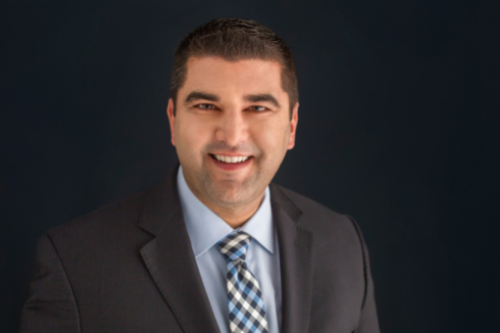

The open market for non-standard automobile risks in Canada has shrunk to the point of non-existence. In order to place policies for drivers who are unable to obtain insurance from standard carriers due to inexperience or a poor driving record, brokers need to have contracts with specialty carriers or underwriting facilities. But in recent years, the number of companies allowing brokers to place non-standard auto business with their organizations has reduced – leaving some brokers and their policyholders in a tight bind.
One insurer staying resolute in this marketplace is Echelon Insurance, whose non-standard auto insurance offering is available in Ontario, Quebec, New Brunswick, Prince Edward Island and Nova Scotia.
“Through Echelon, we are absolutely committed to being in that specialty market,” said Matthew Turack (pictured), president of CAA Club Group, which acquired Echelon Insurance from Echelon Financial Holdings for approximately $166 million in May 2019. “We are absolutely committed to continuing to be in that market and serving that space. There is a need within the marketplace for it, there are specific risks that belong in the specialty auto insurance market, and we are continuing to grow [that business].”
Regarding the future of the specialty or non-standard auto insurance market, Turack said he doesn’t believe there’s a risk of losing companies to the marketplace. But he has identified one concerning trend.
“What I’ve seen recently is some standard markets […] starting to take on risks that would traditionally fall into the specialty or non-standard arena,” he noted. “That does concern me, because from a price point and from a market cycle, we’ve seen this before. We’ve seen these cycles, where companies do take on larger risks or expand their risk appetite and underwriting risk appetite, and then all of a sudden their loss ratios climb, and it ends up hurting the standard customers or the domestic market in that sense.”
Like all specialty risks, underwriting expertise is critical in the non-standard auto insurance market. As Turack pointed out: “You need to understand what you’re writing, how you’re writing it, and what the discipline and claims philosophy is around that.” Only then will insurers be able to write non-standard auto business profitably, and more importantly, sustainably.
“At Echelon, we are absolutely committed to serving our brokers in that market, continuing to make sure brokers have a facility to place that business, and continuing to make sure that is our focus,” Turack stressed. “We’re not looking at expanding into more of the standard field within Echelon.”
The problem that brokers face today is that there are hardly any insurance companies that will engage in open contract business and allow brokers to place non-standard, specialty business in their organizations. This is challenging for brokers because there are a lot of consumers that fall into the specialty category for various reasons. For example, they might have a poor claims history, multiple driving infractions, a prior impaired driving violation, or possibly even past license suspensions.
“What we’ve done from a contracting with brokers perspective, is we have looked for brokers who have not only the ability internally to know what fits into that specialty market, versus where it would go into the standard market, but they also have the capacity and the expertise to know how to manage the business,” said Turack. “And we can see that. It’s from experience, it’s from overall internal staffing procedures, belief and partnership expectations.
“And we’ve seen brokers who just kind of filed the one-offs, and then we’ve seen other brokers who actually have sizable books, good aggregation, and really great specialty [knowledge and expertise] to know how to manage it. What I would say to the broker network is, if you’re trying to manage the one-offs, I think there’s partnerships you can find with brokers who have contracts within the marketplace, who have enough specialty and size to manage that book.”
Moving forwards, Echelon’s success in the specialty auto arena will centre around partnerships - in particular, strong broker partnerships – according to Turack.
“We continue to look for the right partners. We’re not limiting our partners, we’re really making sure that we find the right partners to fit with, and then we can really deepen the relationship and help them grow,” he said. “Whether that’s through Echelon or CAA Insurance, our philosophy is: we look for the right fit and the right partners that can really understand not only how we do business, how they do business, but it’s a two-way understanding, and we can make sure they don’t get hurt by taking on risks that don’t really work with their programs.”
